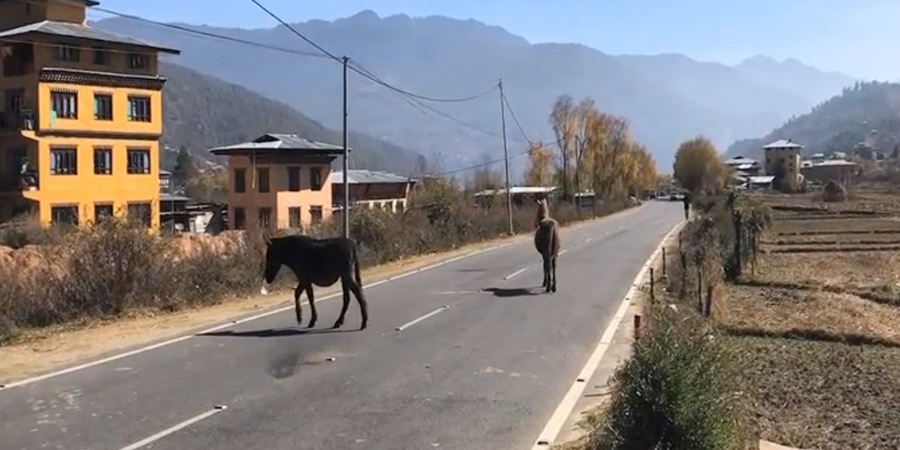 Earlier this week, the Paro Police apprehended a driver who allegedly ran over a horse and killed it. The owner of the animal was also arrested. But they were released on sureties. The case is now in the district court. The Paro Police recorded twenty such cases this year alone. According to the Police, not many people are aware of the rules and regulations in place that can avoid such mishaps.
Earlier this week, the Paro Police apprehended a driver who allegedly ran over a horse and killed it. The owner of the animal was also arrested. But they were released on sureties. The case is now in the district court. The Paro Police recorded twenty such cases this year alone. According to the Police, not many people are aware of the rules and regulations in place that can avoid such mishaps.
At this time of the year when paddy harvest is over, cattle and horses are seen freely grazing in the fields. The animals are then let loose on the roads that end up becoming nuisance to motorists.
“The problem worsens after dusk when drivers from the other direction don’t lower their dipper and out of nowhere stray animals appear on the road. It is only when accidents happen that the owners come and claim their rights,” said Pem Dorji, a taxi driver.
“Owners are not responsible enough to care for their animals. When accidents happen, we are asked to compensate but we can’t tell who is at fault. It poses risks to our passengers as well as the animals themselves,” said Lungten Dorji, another taxi driver.
As per the Royal Safety and Transport Regulations 2021, releasing animals freely along the roads in built up areas and highways is an offence. The owner is liable to pay Nu 1000 as penalty.
Similarly, the person who causes the accident and flees the scene without informing the police or the authority is liable to pay Nu 2500 for hit and run in addition to other compensations specified in the Road Safety and Transport Act 1999.
The Paro Police requested to install streetlights along the highways to avoid such mishaps in the Dzongkhag Tshogdu. But the request never saw the light of the day.
Meanwhile, for the past few months, the Paro Police have been patrolling the highways every evening to prevent such mishaps. And the initiative observed a decrease in the report of such accidents.
Namgay Wangchuk, Paro
Edited by Sonam Pem








